Would you like to start by introducing yourself and your role within the team?
I’m Dr Surabhi Taori, a Consultant in medical microbiology at NHS Lothian. I've been working in the field of infection management for over 2 decades, and I'm the Lead Trainer for the postgraduate medical microbiology and virology training programme.
My role within the team is to oversee the training modules, coordinate with trainers across various specialties, and ensure the training is up-to-date and relevant to the RCPath curriculum. I am passionate about medical education and dedicated to improving the training experience for our future infection specialists.
Our primary focus is delivering high-quality clinical services and training our future specialists to be clinical leaders.
How would you describe an average week for the team?
Our team's average week is dynamic and multifaceted. Our primary focus is delivering high-quality clinical services and training our future specialists to be clinical leaders.
This involves laboratory diagnostics and patient management, alongside research and administrative tasks. In a typical week, our team coordinates ward rounds, telephone advice, laboratory testing and authorisation, 1-on-1 supervision and feedback, lectures, practical lab sessions and simulation exercises. Balancing these responsibilities is challenging but essential for providing comprehensive education and maintaining clinical excellence.
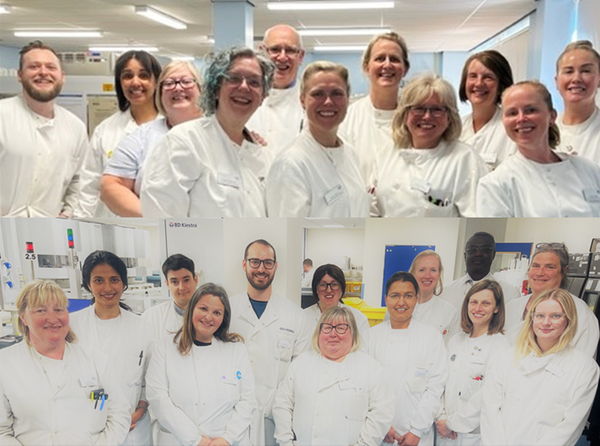
Your team launched the Combined Infection Training (CIT). Can you talk about the background of this achievement and the improvements it made to training and learning?
The previous model of laboratory skills training was geared towards the old medical microbiology and virology curriculum. This proved inefficient and unsustainable for the new infection training programme, which requires trainees of all infection subspecialties to undergo 1 common stem called Combined Infection Training (CIT).
The CIT Bootcamp emerged from a need to streamline and enhance infection training amidst curriculum changes, staffing shortages and increased demands on NHS laboratories post-pandemic. It integrates the foundational aspects of infectious disease laboratory testing and infection management into a single, cohesive 10-day workshop.
For maximum impact, this workshop is timed towards the start of the new intake of trainees and designed to allow maximum interaction among trainees and trainers within a multiprofessional training environment. This model not only optimises resource utilisation, but also provides trainees with a robust and comprehensive learning experience early in their careers.
The introduction of the CIT Bootcamp has improved the quality and efficiency of foundational laboratory skills training while seamlessly integrating clinical applications. This ensures that trainees are better prepared with the knowledge of infection diagnostics before they embark on their respective infection subspecialisms. We spend a significant amount of time periodically reviewing feedback from trainees to improve our training methods.
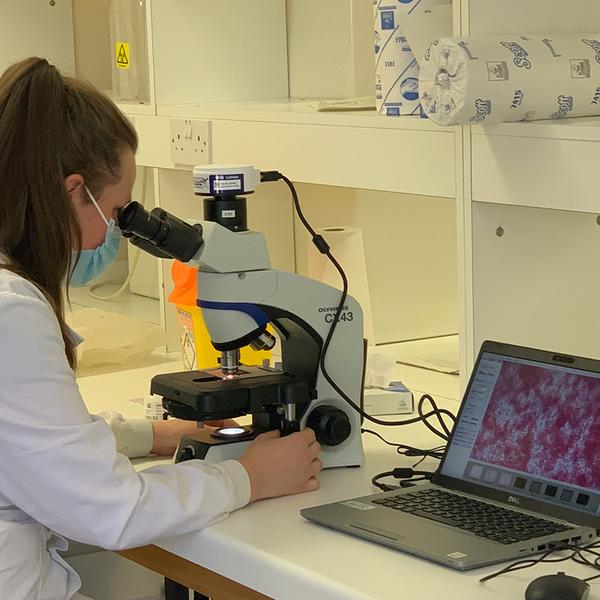
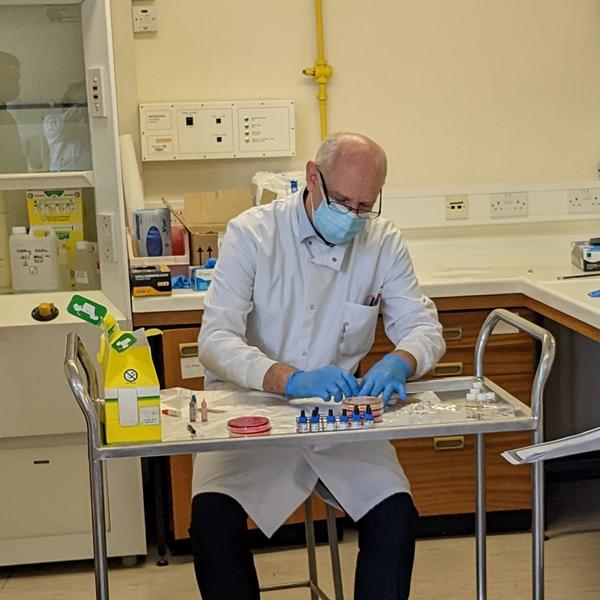
The CIT Bootcamp emerged from a need to streamline and enhance infection training amidst curriculum changes, staffing shortages and increased demands on NHS laboratories post-pandemic
Can you tell us some of the team’s other main achievements?
One of our significant achievements is developing and successfully implementing the Infection Bootcamp. This innovative training model combines theoretical knowledge with practical, hands-on experience in a simulated environment.
The Bootcamp has received outstanding feedback from trainees and trainers alike, highlighting its effectiveness in bridging the gap between academic learning and clinical practice. It has facilitated multidisciplinary and multiprofessional teamwork, leading to a more cohesive approach across the health boards of Scotland.
Another notable achievement is our recognition in the 2023 RCPath Achievement Awards for teamwork. This accolade underscores the dedication and collaborative spirit of our team. Additionally, securing funding from NHS Education for Scotland (NES) in 2023 to make the Bootcamp accessible to all Scottish trainees was a milestone, ensuring equity and enhancing the training experience across Scotland.
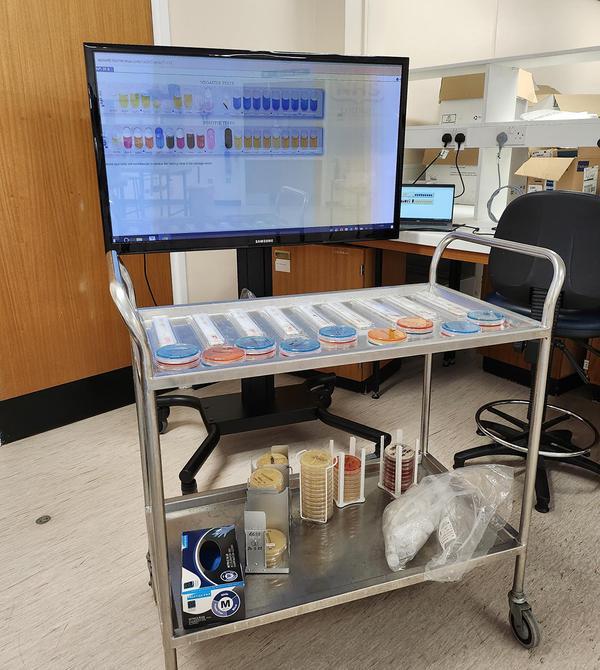
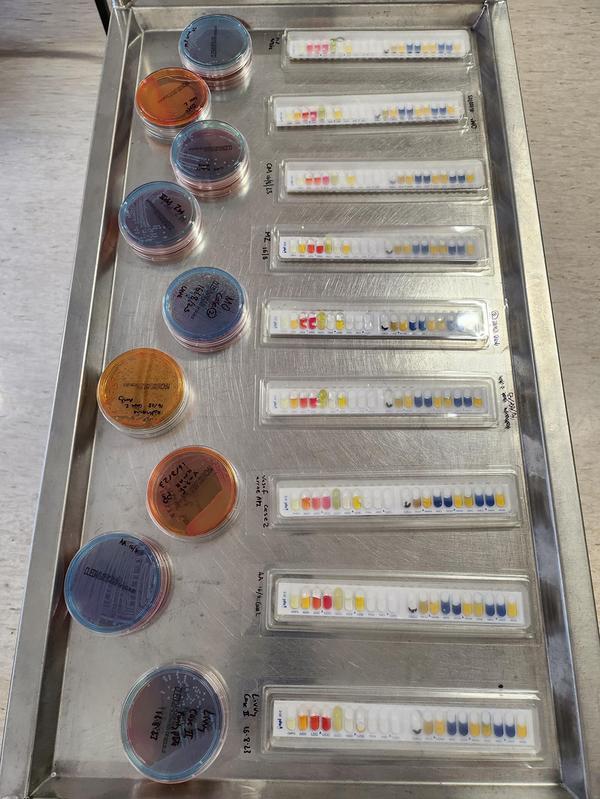
What are some challenges the team has faced?
Despite our successes, the team has faced several challenges. The initial implementation of the Infection Bootcamp was an experimental effort delivered within the constraints of the COVID-19 pandemic. Some gaps were discovered and eventually smoothed with trainee feedback and stakeholder engagement.
In the initial years, such a concentrated effort put significant pressure on our already strained microbiology and virology departments. Balancing clinical duties with intensive training delivery tested the resilience of trainers. Over the years, support from colleagues across Scotland has eased the pressure and created better collaborative opportunities.
As a result, the revised version of the Bootcamp delivers a programme tailor-made for trainees' needs. The cost of delivering this high-quality training was another major hurdle, especially for trainees from distant regions in Scotland. Although NES funding has eased financial pressures, ongoing staffing challenges across Scotland pose a continual threat to the sustainability of this initiative.
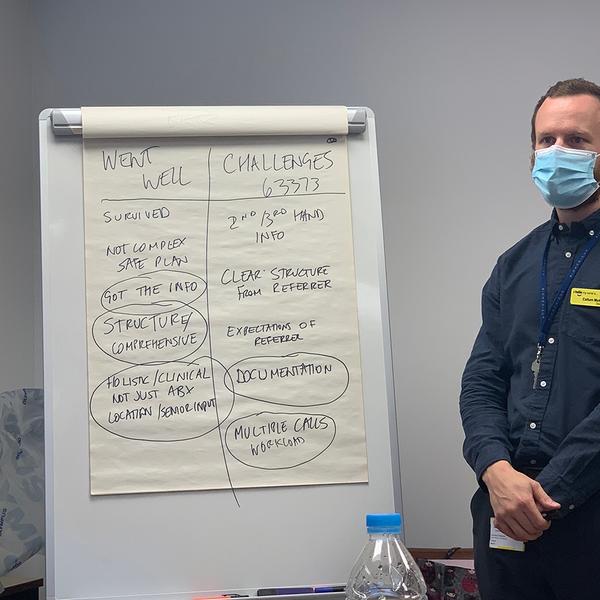
Ultimately, our vision is to establish our training model as a gold standard in infection education, contributing to improved patient care.
Is there anything that you wish to achieve in the team going forward?
Moving forward, our primary goal is to ensure the Infection Bootcamp's sustainability and scalability. We aim to integrate advanced simulation technologies and e-learning platforms to enhance trainee accessibility and flexibility.
Another key aspiration is to foster stronger collaborations with other health boards and international institutions. By doing so, we can bring diverse expertise and perspectives into our training modules, enriching the learning experience for our trainees.
We also plan to conduct comprehensive research studies to assess the long-term impact of our training programmes on clinical outcomes. Ultimately, our vision is to establish our training model as a gold standard in infection education, contributing to improved patient care.
What advice would you give someone who wants to work in the microbiology or virology area of pathology?
For those interested in pursuing a career in infection sciences, my advice is to cultivate a strong foundation in both clinical practice and the nuances of laboratory diagnostics.
Embrace continuous learning and be proactive in seeking out diverse training opportunities. Developing skills in data analysis and staying abreast of emerging technologies and methodologies is crucial in this rapidly evolving field. Additionally, fostering a collaborative mindset and practical communication skills will be invaluable, as this specialty often requires working closely with multidisciplinary teams.
Finally, be prepared for challenges, but remain passionate and dedicated to making a meaningful impact on patient care.

